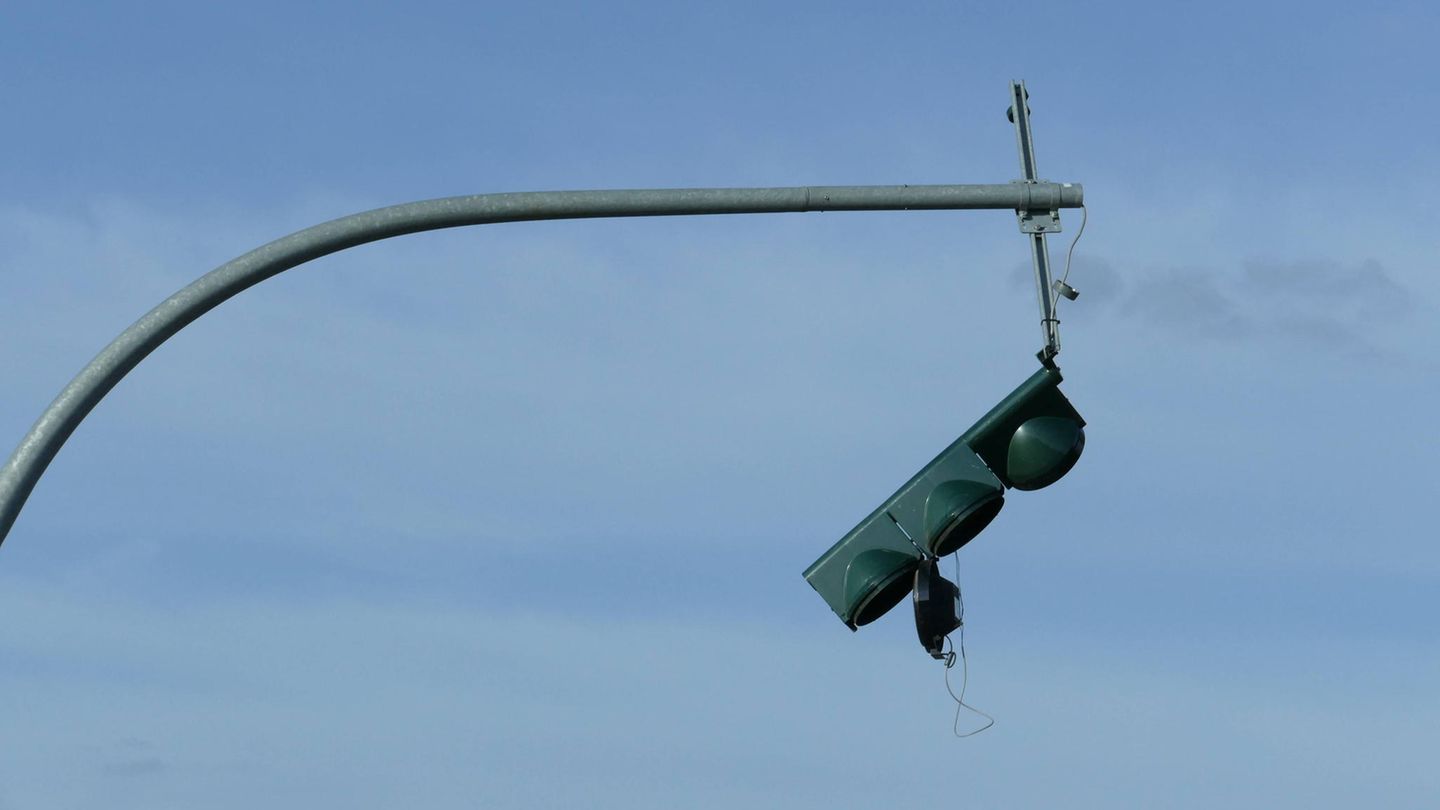The traffic light coalition has probably seen its future through – but still has a few things planned. But every project could be the last.
These days, people in the traffic light coalition are really friendly with each other. Well, almost. The SPD has announced a “tougher approach”, the Greens are shrinking the coalition to a “transitional government”, and the FDP is questioning the legitimacy of the coalition. Constant moaner Wolfgang Kubicki even publicly predicts that Olaf Scholz will not be re-elected as chancellor. In short: the summer break is over, and so is the time for restraint. Of course, there never really was one.
Nevertheless, things are still simmering a little more now that the coalition is stumbling into the final stretch. The federal election is on September 28, 2025, but only if the traffic light coalition pulls itself together. Otherwise, it will be sooner. The election campaign has long since started and with it the struggle for the greatest area of profile. Where is the potential for conflict greatest? How likely is a premature break?
Pension – the SPD is losing patience
In addition to a higher minimum wage, secure pensions were one of Olaf Scholz’s most important election promises. But the fronts on the SPD’s pet project have been hardened in the coalition for months. In March, Labor Minister Hubertus Heil (SPD) and Finance Minister Christian Lindner (FDP) presented the so-called Pension Package 2. The FDP man initially prevented the cabinet from passing it in a budget dispute. When the cabinet decision was finally made, however, numerous liberals declared an increase in pension contributions a no-go.
The pension package is intended to secure the so-called pension level of 48 percent for the foreseeable future. There is also a liberal aspect in the package: the entry into generational capital, for which money is to be invested. But there is great resistance to an increase in pension contributions in the FDP, and generational capital is not enough for many liberals.
After the recent election defeats in Saxony and Thuringia, the SPD is increasing the pressure: the fact that pension promises have not yet been fulfilled is because a coalition partner is keeping the plan on hold, said SPD General Secretary Kevin Kühnert. “I think I speak for many in the SPD when I say: patience is running thin.” Failure in this plan is out of the question for the SPD, not least because the promise of secure pensions is linked to the Chancellor himself. At the same time, liberal resistance is massive, and since the state elections it seems to have grown even more. Probability of failure: 80 percent.
Migration: “People are fed up”
The debate about migration is all over the place. Panic mode everywhere. After the attack in Solingen, the traffic light coalition agreed on a security package that includes cutting social benefits for Dublin refugees. But that is not enough for the Union, which is demanding rejections at the border – and can count on support from the SPD and FDP. That, in turn, could lead to major problems with the Greens, for whom a tightening of asylum policy is always a source of controversy.
Interior Minister Nancy Faeser has already announced that she has found a model for rejections that comply with European law. Where there is political will, the traffic light coalition usually also has a legal path, even if sometimes only as far as the first court ruling. If an agreement is reached, it would be a truly historic change of course in migration policy nine years after the refugee crisis and Angela Merkel’s refusal to reject asylum seekers at the border.
But it looks as though the Liberals themselves are not happy with this. Christian Lindner recently spoke out against taboos and is also prepared to talk about changes to the constitution. After losing the state elections in Saxony and Thuringia, the FDP leader complained: “People are fed up with the fact that this state may have lost control of immigration and asylum in Germany.” The FDP faction has presented a long list of demands, which includes further cuts in social benefits for asylum seekers. Tough negotiations are to be expected, but public pressure will also lead to an agreement. Probability of failure: 40 percent.
Household: The stuff that arguments are made of
Money is a constant topic. On Tuesday, Finance Minister Lindner will introduce the 2025 budget bill to the Bundestag. The plan that required the coalition leaders to hold numerous heated night sessions and which still leaves a funding gap of twelve billion euros. Then it is up to parliament to put the figures into law and plug holes. It will be hard work again. The future of the coalition depends on the budget experts of the parliamentary groups. One of them speaks of the “most difficult budget of the legislative period”.
Meanwhile, the SPD is continuing to work on a reform of the debt brake. “If you ask what the strategic approach is,” says parliamentary group leader Rolf Mützenich: “That we won’t let up.” We know that a reform cannot be implemented in this government with the FDP, but the ideas could also be of use to possible future coalitions. So…
Nevertheless, the traffic light coalition will push through the budget. The financial basis is too important for what the parties were already doing during the rowdy budget negotiations: to profile themselves for the next election campaign. Probability of failure: 30 percent.
Ukraine aid: Waiting for Russian money
Germany is the biggest supporter of Ukraine in Europe in the fight against the Russian aggressor. Aid has already cost around 34 billion euros since the war began in February 2022. Humanitarian aid, refugee reception and weapons. Just over seven billion euros in military aid is planned this year – money that has largely been used up or planned for. Most recently, Defense Minister Boris Pistorius (SPD) announced the delivery of twelve more self-propelled howitzers, at a cost of 150 million euros.
For 2025, the draft budget only provides four billion euros for military support. The government justifies this by saying that additional money will be obtained from frozen Russian assets. The interest income from these will be skimmed off and made available to Ukraine. It will also serve as collateral for a loan of around 50 billion dollars that the G7 states have promised Ukraine. This is currently being negotiated between the USA and the EU. But what if it is not completed in time – or the project fails completely?
If the schedule is missed, the funds for military aid will have to continue to come from national budgets for the time being. The coalition has actually made provisions for this case: As early as December 2023, Olaf Scholz, Christian Lindner and Robert Habeck agreed to suspend the debt brake for Ukraine aid if an unforeseen emergency situation arises. Arguments in the coalition are inevitable, about the necessity, the amount, about everything. In the middle of an election year. Probability of a break: currently 30 percent, potentially 75 percent.
Rent: Do unto others as you would have them do unto you
What was sold as a breakthrough caused discontent in the SPD. Shortly before the deadline, the traffic light coalition agreed to extend the rent cap beyond 2025. This will apply until 2029. In return, the FDP pushed through strict limits on data retention. Only the “quick freeze” procedure was passed. It allows investigative authorities to have certain data on suspects stored under strict conditions.
One rightly asks: what does one have to do with the other? The two unrelated topics were linked together. Tit for tat, I do to you. Traffic light business as usual. Then nothing moved forward.
But now everything is fine – or is it? Take it easy, take it easy. Although the cabinet is set to approve the extension of the rent cap in the autumn, that is not enough for the comrades. They want to put together a more generous rent package, the “Rental Law Reform II”. The timetable is still open, but the expectations are clear: There must also be a reduction in the so-called capping limit and a mandatory rent index. No objections.
Even before the election debacle in Saxony and Thuringia, the SPD was whispering that if the rent package was blocked, it could tie other issues to it – just like the FDP does. After the defeat, top comrades let it be known that they would not give in on this. After all, the SPD had put the rent issue on the posters, just like it did with pensions. Probability of failure: 60 percent.
Source: Stern
I have been working in the news industry for over 6 years, first as a reporter and now as an editor. I have covered politics extensively, and my work has appeared in major newspapers and online news outlets around the world. In addition to my writing, I also contribute regularly to 24 Hours World.




